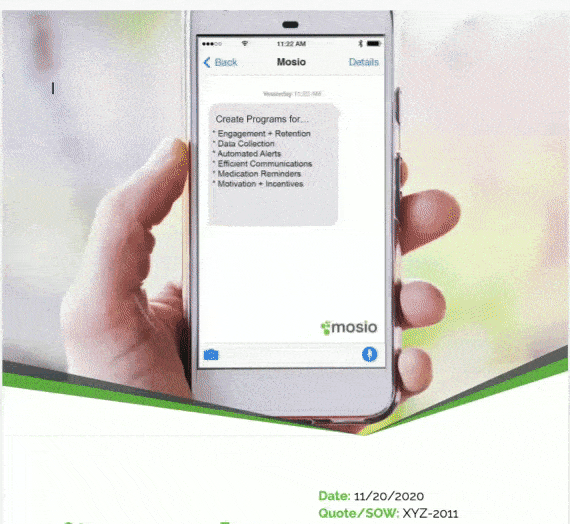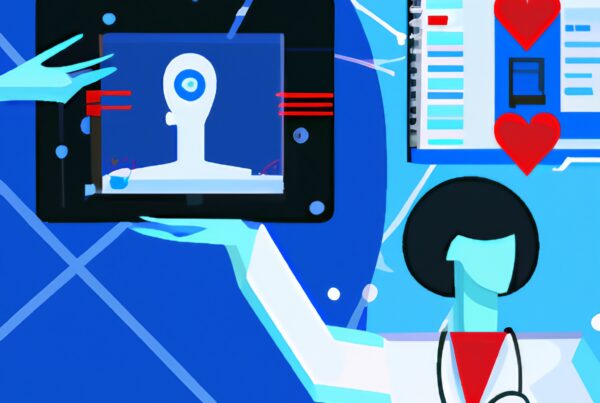As we move into the future of clinical trials, artificial intelligence (AI) is playing a more integral role than ever. AI enables more accurate analyses of data points, faster results that can provide improved accuracy compared to older methods and technology-driven improvements in identifying patterns within large datasets. In this 7 part series, we will explore how AI is revolutionizing the world of clinical research, from virtual trial design to patient recruitment and safety monitoring during trials through to post-marketing assessments for drug development teams. Alongside this information-rich series of blog posts – readers will gain all the necessary knowledge about AI’s impact on clinical trials that they need to be informed decision makers.
Part #1: Revolutionizing Clinical Trials: How AI is Streamlining the Drug Development Process
Part #2: How AI Can Improve Data Collection And Analysis In Clinical Trials
Part #3: The Ethical and Regulatory Considerations Surrounding the Use of AI in Clinical Trials
Part #4: How AI Can Be Used to Improve Patient Recruitment and Retention in Clinical Trials
Part #5: Real-World Examples of AI Being Used to Improve Clinical Trial Design, Management, and Outcomes
Potential Future Developments in AI That Could Further Impact the Clinical Trial Industry
Artificial intelligence (AI) has already had an immense impact on the clinical trial industry. From automating data analysis to streamlining trial logistics, AI’s ability to quickly process large amounts of data and identify patterns has revolutionized the way clinical trials are conducted. But what will the future bring? Here, we discuss some potential developments in AI that could further shape the clinical trial landscape.
Data Management and Analysis
One major application of AI in clinical trials is data management and analysis. With its ability to quickly analyze vast amounts of data points, AI can help researchers identify patterns and draw meaningful conclusions faster than ever before. This can lead to more efficient use of resources as well as more accurate results. Additionally, AI-powered solutions can be used to optimize study designs and ensure that data is collected efficiently and accurately from start to finish.
Patient Engagement
AI-powered solutions are also being used to improve patient engagement in clinical trials. By leveraging digital tools such as virtual reality, augmented reality, voice recognition technology, chatbots, and other interactive technologies, researchers can make it easier for patients to stay engaged with their studies and comply with protocol requirements throughout the entire trial process. This not only makes it easier for patients to participate in a study but also ensures that they receive timely feedback regarding their participation—which can lead to better outcomes overall.
Automation of Trial Processes
Finally, AI solutions are being used to automate various processes involved in clinical trials such as consent acquisition, sample collection, drug delivery tracking, subject recruitment, regulatory compliance monitoring, data entry/validation/verification processes etc., which can reduce costs associated with manual labor while improving accuracy at the same time. Automated solutions are also being developed for patient follow-up visits both during a study’s active phase as well as when it ends—which can help ensure better long-term outcomes for participants in a study by providing them with personalized care plans tailored specifically for them based on their individual needs.
Conclusion
As you can see, there are numerous potential developments in artificial intelligence that could further shape the way clinical trials are conducted—from streamlining data management processes to optimizing patient engagement strategies. By leveraging these advanced technologies, researchers have access to powerful tools that allow them to better understand their studies and make more informed decisions about how best to proceed—ultimately leading towards more successful results for all involved parties over time.
Communications automation is the future of clinical trials, happening now. Use Mosio mobile messaging software to improve engagement, adherence, and data collection in your clinical trials, available on every mobile device. Get a quote for any current or upcoming studies you have or contact us for a demo.
Note: The titles, content and artwork for the articles in this series were all created by AI.







